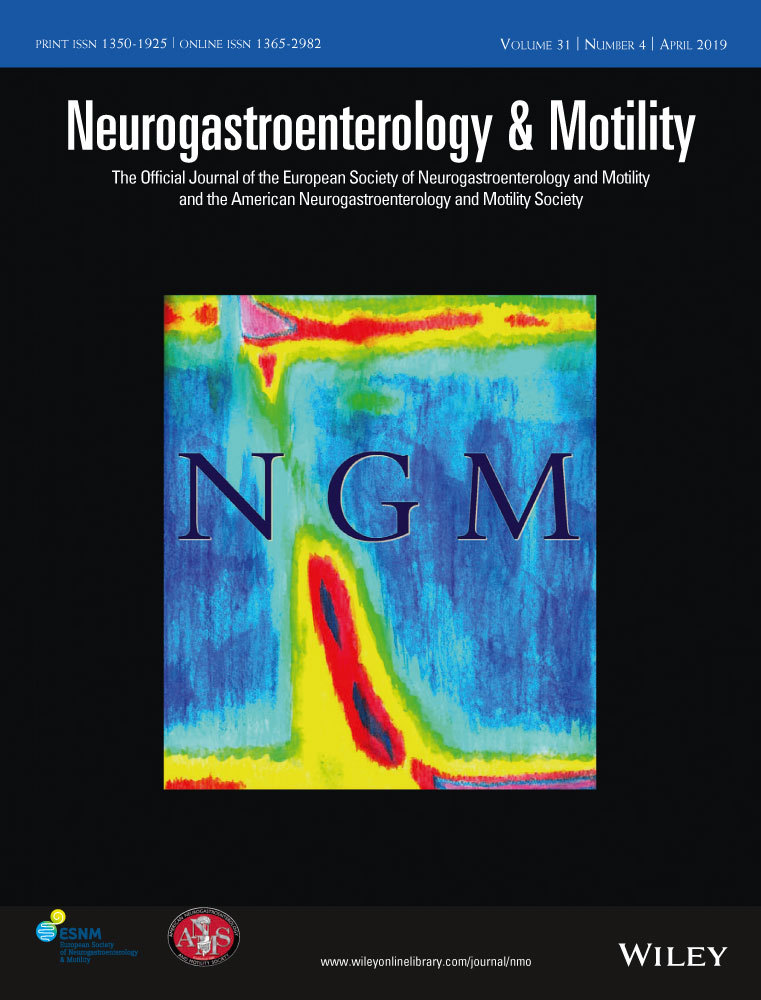The American neurogastroenterology and motility society gastroparesis cardinal symptom index-daily diary (ANMS GCSI-DD): Psychometric evaluation in patients with idiopathic or diabetic gastroparesis
Funding information
This work was supported and funded by Takeda Pharmaceuticals USA.
Abstract
Background
The purpose of this study was to evaluate the measurement properties of the American Neurogastroenterology and Motility Society Gastroparesis Cardinal Symptom Index-Daily Diary, a patient-reported outcome instrument developed to meet US FDA recommendations for a symptom-based clinical trial endpoint in gastroparesis. The ANMS GCSI-DD assesses nausea, early satiety, postprandial fullness, and upper abdominal pain on a severity score from none (0) to very severe (4) and number of vomiting episodes during the past 24 hours. The composite score includes the first four symptoms, the core symptom score includes all five symptoms.
Methods
Seventy-one patients diagnosed with idiopathic or diabetic gastroparesis were recruited for a four-week observational study. Patients completed the ANMS GCSI-DD at home between Baseline and Week 4. Statistical analyses included confirmatory factor analysis, item response theory analysis, internal consistency, test-retest reliability, and construct and known-groups validity.
Key Results
Unidimensionality for the composite and core symptom scores was supported, and items exhibited good fit. Internal consistency (Cronbach's alpha =0.85 and 0.83) and test-retest reliability were 0.89 and 0.88, for composite and core symptom scores, respectively. Convergent validity was supported by strong correlations with patient-reported and clinician measures. Baseline and Week 4 scores differed for three measures used to define disease severity status (P < 0.0001), supporting known-groups validity.
Conclusions & Inferences
The ANMS GCSI-DD has excellent reliability and validity, supporting its use to assess symptom-based endpoints in gastroparesis clinical studies. Further analyses will be conducted using clinical trial data to ascertain treatment responsiveness and define a responder.
DISCLOSURE
JP and CA are employees of Takeda Pharmaceuticals, the study sponsor who provided funding for this study. The study sponsor was involved in the design of the study, interpretation of the data, and preparation, review and approval of the manuscript. DR, RS, and SL are employed by Evidera, a company that received funding from Takeda for the time spent on this research. As Evidera employees, they worked with a variety of companies and organizations and are expressly prohibited from receiving any payment or honoraria directly from these organizations for services rendered. MC, HP, and BK serve as advisors to Takeda Pharmaceuticals and conduct research supported by Takeda Pharmaceuticals. They received no personal financial remuneration.




